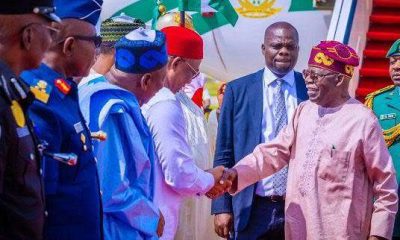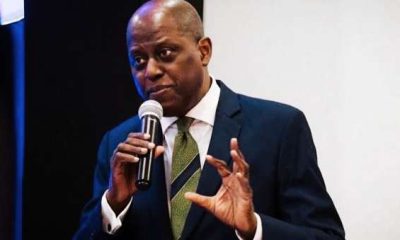Business
Exit of Niger, Mali, Burkina Faso will cost us $1bn — ECOWAS

The Economic Community of West African States (ECOWAS), has warned that the withdrawal of Niger, Mali and Burkina Faso from the bloc puts its investments worth nearly $1 billion at risk.
Dr Omar Touray, President of ECOWAS Commission, gave the warning at the inauguration of the sixth ECOWAS Parliament held at the International Conference Centre, Abuja on Thursday.
In January 2024, the three countries announced their withdrawal from the ECOWAS, citing “illegal sanctions” attracted by an unconstitutional change of government.
The decision followed ECOWAS imposition of sanctions on them in the aftermath of military coups.
The subregional body lifted the sanctions earlier in February, but the gesture has been snubbed by the three countries.
Touray, in his remarks, warned that “On the economic and financial front, the withdrawal of the three states could result in default or suspension of all ECOWAS projects and programmes in these countries, worth more than $500 million.
“It should be noted that the ECOWAS Bank for Investment and Development currently has 27 ongoing public sector projects in the three countries valued at approximately $321.6 million.
“38 per cent of this is in the form of investment in the public sector, while 61 per cent is constituted by investment in the private sector.”
Touray, therefore, tasked the new representatives of the ECOWAS Parliament to take their role serious in keeping the nearly five-decade-old bloc together and stronger.
The ECOWAS Parliament, also known as the Community Parliament, was established under Articles 6 and 13 of the ECOWAS Revised Treaty of 1993.
The initial protocol establishing the Parliament was signed in Abuja on August 6, 1994, providing for the Structure, Composition, Competence and other matters relating to the Parliament.
The Parliament is composed of 115 seats. Each member state has a guaranteed minimum of five seats, while the remaining 40 seats are shared based on population.
However, only 97 members, comprising lawmakers from various member states, were sworn in on Thursday. They include 35 members from Nigeria and five from Benin Republic, Cabo Verde, The Gambia, Guinea-Bissau, Liberia, Sierra Leone and Togo. Others include eight members from Ghana, seven from Cote d’Ivoire and six from Senegal and Guinea.
Mali, Niger and Burkina Faso have no representatives in the Sixth Parliament, despite receiving invitations to send representatives.
Citing Touray’s remarks, Chairman of the ECOWAS Authority of Heads of State and Government, President Bola Tinubu, appealed to the three countries to reconsider their stance, as their exit could spell far-reaching consequences for their citizens as well as the sub-region.
He called on ECOWAS member states to come together, strengthen ties and reject forces bent on causing division within the community.
Tinubu argued that regional solidarity is imperative to strengthen the bloc’s resilience and effectiveness at this critical juncture as he said member states cannot afford to remain passive spectators while the community faces the threat of disintegration.
“We stand united against such forces and are committed to ensuring our unity remains unshaken.
“We must ensure that cooperation amongst us is strengthened to build a sense of common destiny and purpose. No one can do this for us. We must come together,” he said.













